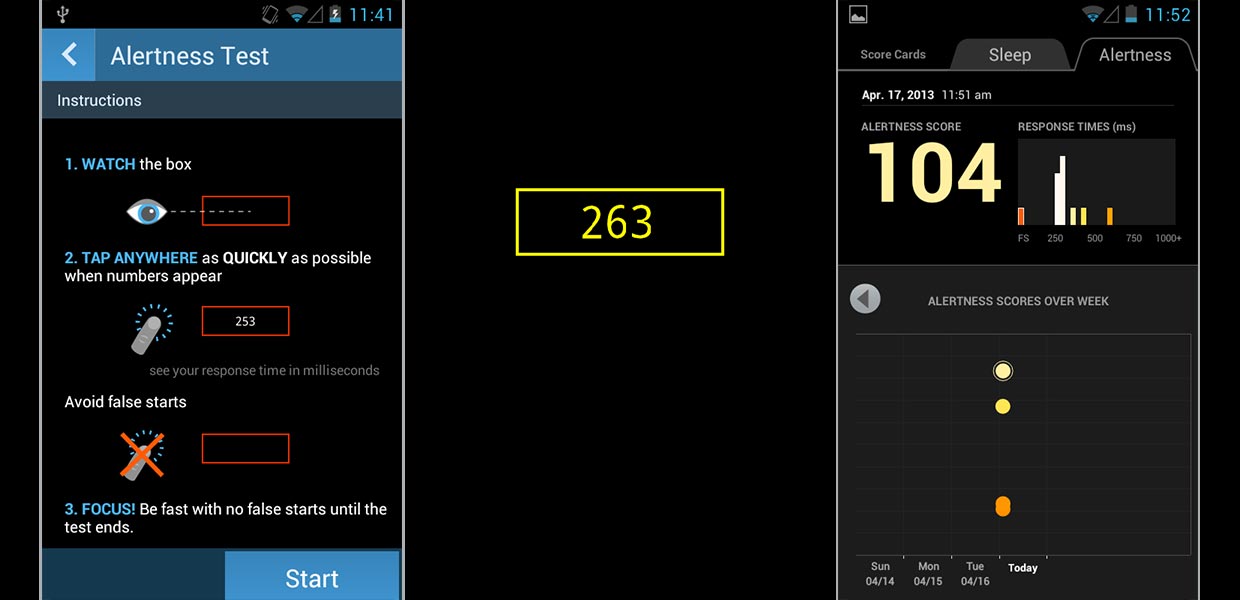Pulsar Informatics, Inc. received the first ever SMARTCAP grant in the fall of 2011. It used the grant to develop SleepFit, a smartphone-based; three minute Psychomotor Vigilance Test (PVT). A custom version of SleepFit has been used in a U.S. Department of Transportation (DOT) study to assess the impact of recently revised safe driving regulations for commercial truck drivers.

Challenges
Address the need to improve worker effectiveness and safety in space and on Earth.
Assess the impact of recently revised safe driving regulations for commercial truck drivers.
Products and services
PVT
SleepFit
“The DOT’s use of a customized SleepFit is a concrete example of how research funding to improve the health and job performance of astronauts can often be applied to benefit people on Earth. Astronauts must contend with irregular sleep patterns, as do workers in the transportation, energy and healthcare industries.”
Dr. Dorit Donoviel, NSBRI deputy chief scientist and Industry Forum lead.
Pulsar Informatics, Inc. received the first ever SMARTCAP grant in the fall of 2011. It used the grant to develop SleepFit, a smartphone-based; three minute Psychomotor Vigilance Test (PVT). A custom version of SleepFit has been used in a U.S. Department of Transportation (DOT) study to assess the impact of recently revised safe driving regulations for commercial truck drivers.
Solution
SleepFit was used in a field study sponsored by the Federal Motor Carrier Safety Administration (FMCSA) to evaluate Hours of Service (HOS) regulations for commercial truck drivers. Pulsar contributed to the study, which assessed fatigue in long haul truck drivers. The results were reported in January 2014.
The app allowed drivers to complete brief alertness tests before and after driving. The study also assessed driving performance, such as lane and speed deviations. Drivers wore wrist activity monitors that measured sleep and wakefulness. The study confirms the science used to make the hours-of-service rule more effective at preventing crashes that involve sleepy or drowsy truck drivers.
“The DOT’s use of a customized SleepFit is a concrete example of how research funding to improve the health and job performance of astronauts can often be applied to benefit people on Earth,” said Dr. Dorit Donoviel, NSBRI deputy chief scientist and Industry Forum lead. “Astronauts must contend with irregular sleep patterns, as do workers in the transportation, energy and healthcare industries.”
This study brought into focus the importance of fatigue planning and a gap in products for the commercial motor vehicle market related to tracking and mitigating driver fatigue. There is a need for route planning software that helps drivers and dispatchers plan drives in a way that optimizes constraints related to load assignments, hours-of-service regulations, fatigue, traffic, and rest stop availability.
Since receiving the inaugural SMARTCAP grant, Pulsar has expanded its Fatigue Risk Management technology offerings to provide a comprehensive suite of products and services to mitigate fatigue risk. The product, called Trucking Fatigue Meter, will be available for purchase as an add-on to route planning and electronic log solutions through industry leading route-planning products.
Pulsar now serves many fortune 500 companies included some of the most recognized brands in the petroleum, manufacturing, finance and retail industries.

